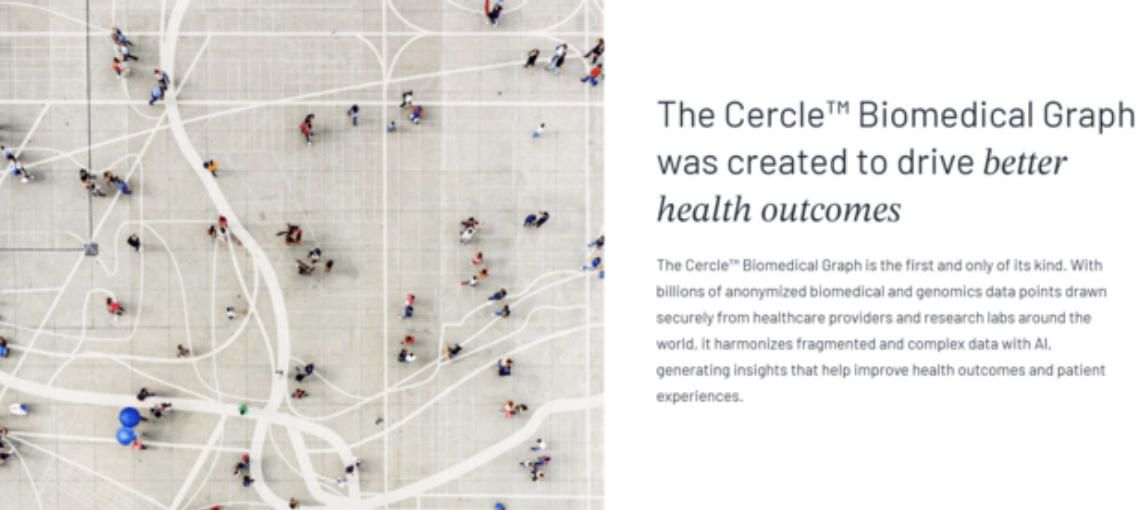Government
Cercle Launches AI-Powered Biomedical Graph for Fertility & Women’s Healthcare
What You Should Know: Cercle, an AI technology company unlocking comprehensive and secure data insights for the healthcare industry, announced its launch…


What You Should Know:
- Cercle, an AI technology company unlocking comprehensive and secure data insights for the healthcare industry, announced its launch today. Its technology platform, the Cercle™ Biomedical Graph, is the first and only of its kind, harnessing and connecting billions of anonymized biomedical and genomics data points drawn securely from healthcare clinics and research labs around the world.
- When channeled through the Cercle™ Biomedical Graph, these data points become a treasure trove of insights for clinics, medical researchers, healthcare providers, patients, and the rest of the healthcare ecosystem. These data insights can accelerate medical discoveries in the pharmaceutical and research fields, enable the acceleration of precision medicine and personalized treatments, help clinics improve the efficiency and effectiveness of medical care, and ultimately, drive better health outcomes. The company has already partnered with two trusted healthcare institutions, Eurofins Genoma and US Fertility.
Leveraging Billions of Anonymous Biomedical and Genomic Data Points to Provide Comprehensive and Secure Healthcare Insights
Cercle is revolutionizing fertility and women’s healthcare with advanced AI technology, turning unstructured medical data into precise insights. The Cercle Biomedical Graph, using FDA-approved Real World Data (RWD) and Real World Evidence (RWE), empowers clinicians to create personalized treatment plans based on diverse patient histories. Cercle prioritizes data privacy and partners with clinics worldwide, offering the most comprehensive RWD and RWE medical records available.
“We believe a healthy life is a right, not a privilege,” says Juan Carlos Riveiro, CEO & co-founder of Cercle. “Instead of continuing to collect cobwebs, the world’s medical data should be leveraged to generate groundbreaking data-driven insights at speed and scale. These insights can catalyze medical breakthroughs, and guide practitioners and patients to better healthcare decisions. That’s the founding mission behind Cercle, to personalize and contextualize biomedical and genomics information so women can make better, more informed health decisions. We are starting with the fertility market, and our long-term goal is to radically improve healthcare equity for women across the world.”
Cercle collaborates with reputable fertility and genetics institutions like US Fertility and Eurofins Genoma, building a diverse knowledge base to improve patient healthcare decisions. The company’s mission is to bridge the data gap in women’s healthcare. Historically, only a small percentage of biopharma and medtech innovations address women’s health, and women’s inclusion in medical research only became mandatory with the 1993 NIH Revitalization Act. Research from the University of Copenhagen reveals that women are often diagnosed four years later than men in over 700 diseases, impacting global women’s health outcomes due to data disparities and delayed diagnoses.
genomics
medical
healthcare
ai
medicine
pharmaceutical
fda
research

Here Are the Champions! Our Top Performing Stories in 2023
It has been quite a year – not just for the psychedelic industry, but also for humanity as a whole. Volatile might not be the most elegant word for it,…
AI can already diagnose depression better than a doctor and tell you which treatment is best
Artificial intelligence (AI) shows great promise in revolutionizing the diagnosis and treatment of depression, offering more accurate diagnoses and predicting…
Scientists use organoid model to identify potential new pancreatic cancer treatment
A drug screening system that models cancers using lab-grown tissues called organoids has helped uncover a promising target for future pancreatic cancer…













